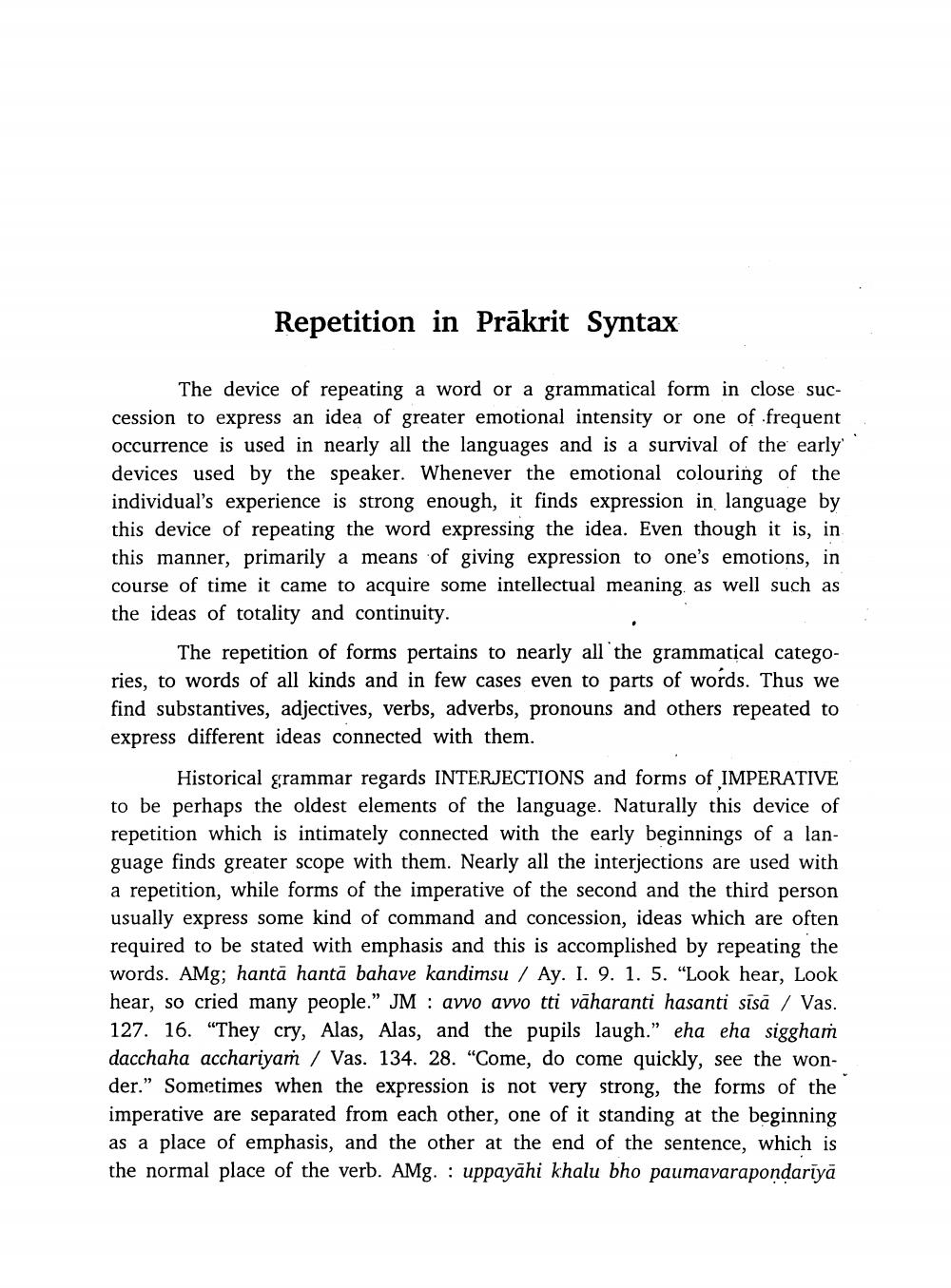________________
Repetition in Prākrit Syntax
The device of repeating a word or a grammatical form in close succession to express an idea of greater emotional intensity or one of frequent occurrence is used in nearly all the languages and is a survival of the early devices used by the speaker. Whenever the emotional colouring of the individual's experience is strong enough, it finds expression in language by this device of repeating the word expressing the idea. Even though it is, in this manner, primarily a means of giving expression to one's emotions, in course of time it came to acquire some intellectual meaning, as well such as the ideas of totality and continuity.
The repetition of forms pertains to nearly all the grammatical categories, to words of all kinds and in few cases even to parts of words. Thus we find substantives, adjectives, verbs, adverbs, pronouns and others repeated to express different ideas connected with them
Historical grammar regards INTERJECTIONS and forms of IMPERATIVE to be perhaps the oldest elements of the language. Naturally this device of repetition which is intimately connected with the early beginnings of a language finds greater scope with them. Nearly all the interjections are used with a repetition, while forms of the imperative of the second and the third person usually express some kind of command and concession, ideas which are often required to be stated with emphasis and this is accomplished by repeating the words. AMg; hantā hantā bahave kandimsu / Ay. I. 9. 1. 5. “Look hear, Look hear, so cried many people.” JM : avvo avvo tti vāharanti hasanti sisā / Vas. 127. 16. "They cry, Alas, Alas, and the pupils laugh." eha eha siggham dacchaha acchariyaṁ / Vas. 134. 28. "Come, do come quickly, see the wonder.” Sometimes when the expression is not very strong, the forms of the imperative are separated from each other, one of it standing at the beginning as a place of emphasis, and the other at the end of the sentence, which is the normal place of the verb. AMg. : uppayāhi khalu bho paumavarapondariya




